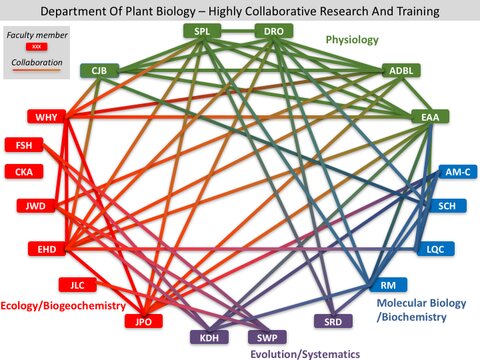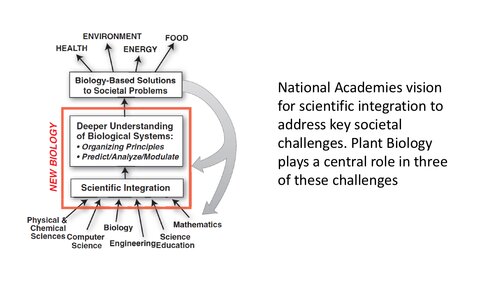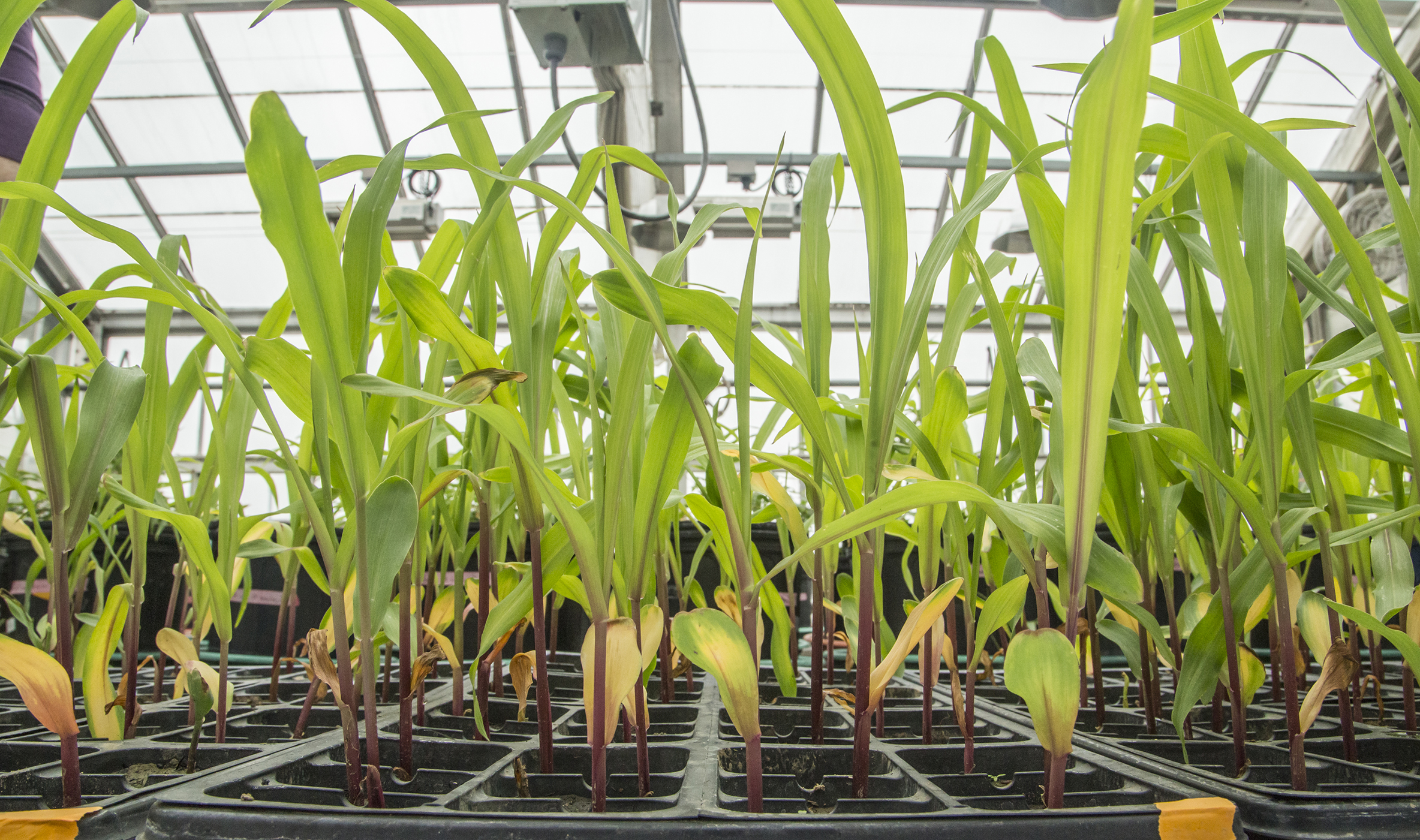
The Department of Plant Biology is one of the oldest academic units at the University of Illinois. The department was established in 1901, and the first PhD degree was conferred in 1909. The department has historical strengths in plant physiology, particularly photosynthesis research, enhanced by the presence of the USDA ARS Global Change and Photosynthesis Research group on campus, as well as in paleobotany, plant systematics, and ecology.
Our mission is to conduct basic and translational research and training in plant biology that integrates across temporal scales and levels of biological organization. We occupy a unique position on campus – as the only department that explores the biology of plants from the biochemical and molecular to the ecosystem scale.
Our faculty self-identify research interests in one or more of four categories: (i) ecology and climate change; (ii) physiology and development; (iii) biochemistry and genetics; (iv) systematics and evolution. Despite these disciplinary differences, the breadth and overlap in the areas of expertise within our department results in a highly inclusive network of collaborations. These collaborations across sub-disciplines, represented as links in the tanglegram below, highlight how Plant Biology faculty successfully conduct integrative research, and cooperate to address questions across multiple scales of organization.

Faculty names (clockwise from top): DRO – Donald Ort; ADBL – Andrew Leakey; EAA – Lisa Ainsworth; AM-C – Amy Marshall-Colon; SCH – Steve Huber; LQC – LiQing Chen; RM – Ray Ming; SRD – Stephen Downie; SWP – Surangi Punyasena; KDH – Katy Heath; JPO – James O’Dwyer; JLC – Jessica Conroy; EHD – Evan DeLucia; JWD – James Dalling; CKA – Carol Augspurger; FSH – Feng Sheng Hu; WHY – Wendy Yang; CJB – Carl Bernacchi; SPL – Steven Long
Collaborative multi-disciplinary research is key to solving societal challenges identified by the National Academies. These challenges represent major research foci for Plant Biology faculty:
- Generating food plants to adapt and grow sustainably in changing environments
- Understanding and sustaining ecosystem function and biodiversity in the face of rapid change
- Expanding sustainable alternatives to fossil fuels

Beyond our department, Plant Biology faculty provide leadership for an array of research and training initiatives across campus. These include the Genomic Ecology of Global Change (GEGC) theme in the Institute of Genomic Biology (Don Ort, theme leader; 6 of 7 theme members in Plant Biology), which explores how environmental and biotic stress associated with global change impacts gene expression, metabolomes, and scales to impact ecosystem function, the Gates Foundation RIPE project led by Steve Long, which is an international consortium of plant scientists working to engineer more efficient photosynthesis so as to increase crop yields for staple food crops in grown in Asia and Sub-Saharan Africa, and the Center for Advanced Bioenergy and Bioproducts Innovation (CABBI), a new $115M initiative led by Evan DeLucia and funded by the Department of Energy to generate sustainable and cost-effective biofuels and bioproducts.
